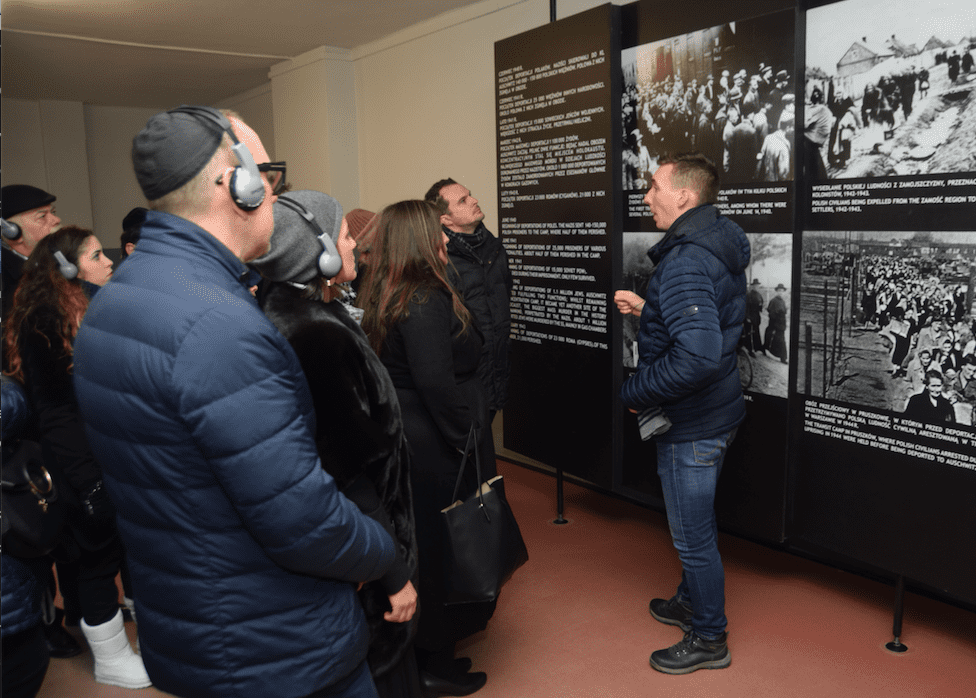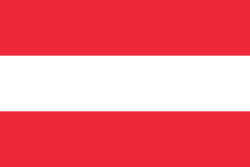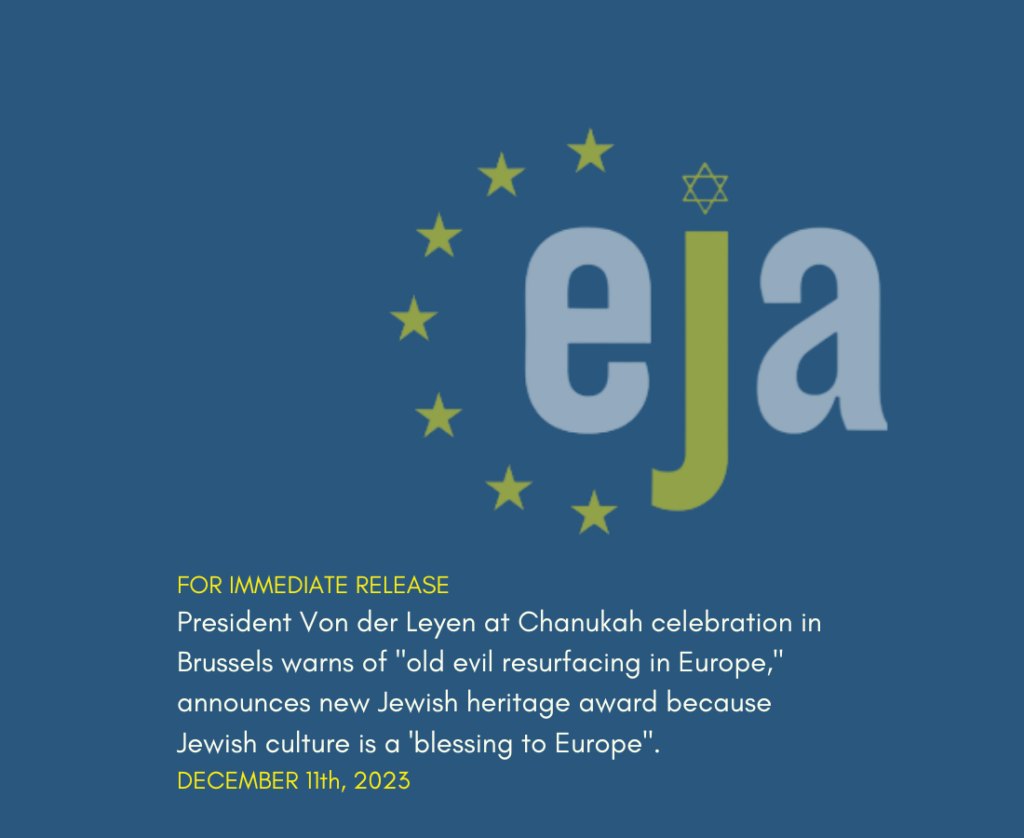As a dear colleague put it, “Where is the monster? It would be easier to deal with if there was a monster here.”
I’m just back from a delegation that we at the European Jewish Association organized to Auschwitz for around 150 ministers and parliamentarians from across Europe. In the days leading up to Holocaust Remembrance Day and the poignant 75th anniversary of the liberation of the most infamous death camp of all, we read the harrowing statements of the last few witnesses, and pledges from the great and the good “never again.”
I’m still trying to process what I saw, to reconcile what in my mind Auschwitz means with what it actually is when you walk through the gates. The word that best sums it up, the word that makes me sick in the very deepest pit of my stomach, is how ordinary it is.
I don’t know what the gates of hell should look like, but if you, like me, try to imagine it, you don’t picture bucolic countryside surrounding it, a McDonald’s drive-thru close by, parents pushing their children up the street, kids loitering around bus stops trying to look cool, and old people chatting outside the shops.
As a dear colleague put it, “Where is the monster? It would be easier to deal with if there was a monster here.”
That perfectly encapsulates what is so scary and upsetting about the place: There’s no monster.
The gates of hell have a parking lot, a pizzeria over the road, and students in tight jeans and Ugg boots chewing gum while waiting to have a look inside. Our Jewish ground zero, literally the sight of our worst nightmare, the scar that each and every one carries in our heart, is an ordinary place.
Now I have to tell you that the staff there are incredible people. Our guide Michal believes with every ounce of his being that it is his duty as a resident to tell the story and history of the place. His knowledge is terrible and devastating. He paints a visual Guernica with his words: the 7 tons of human hair that they found packed and ready to be stuffed into God knows what; the fact that they found traces of Zyklon B in the hair; the number of people who shoveled bodies into the crematoria. I could go on but I won’t.
A few hundred meters from Auschwitz is Birkenau. If Auschwitz is hell’s waiting room, Birkenau is where the doctor, quite literally, would see you. Selection, and then into the flames. Gone for eternity.
And yet again, so close by, you find houses with swings in the yard, bored dogs barking at cars, the half-constructed BBQ made of bricks that was never quite finished (maybe next year when the rain lets up).
Auschwitz is so terrifying to me, not because of what happened inside those gates. I know the horrors, I’ve been raised on them. No, it’s so terrifying because of what goes outside of them, so close, so palpably close. A town where life 80 years ago continued its slow, mundane pace.
While the crematoria burned and the latest shipment of Greek Jews arrived to be murdered, two old men sank a pint in the nearby pub. A baby cried because its toy broke. Teenagers fumbled awkwardly away from watching eyes.
I can’t reconcile at all how ordinary life could continue. And worse, I’m scared. I’m scared that people can tuck into their Margherita pizza after the tour is over, the same way that you can swim with Jaws at Universal Studios then tuck into wings and fries.
I’m scared too that surrounded by this ordinariness, just as it was all those years ago, antisemitism can keep rising and keep rising while tourists keep on going through those gates having learned nothing, and worse, get back to the football and order another drink while the kindle for the fires of hell is slowly being gathered again, right under their noses, and ordinary life continues.
The writer, Alex Benjamin, is the director of public affairs at the European Jewish Association.
The article was published by the JPost














